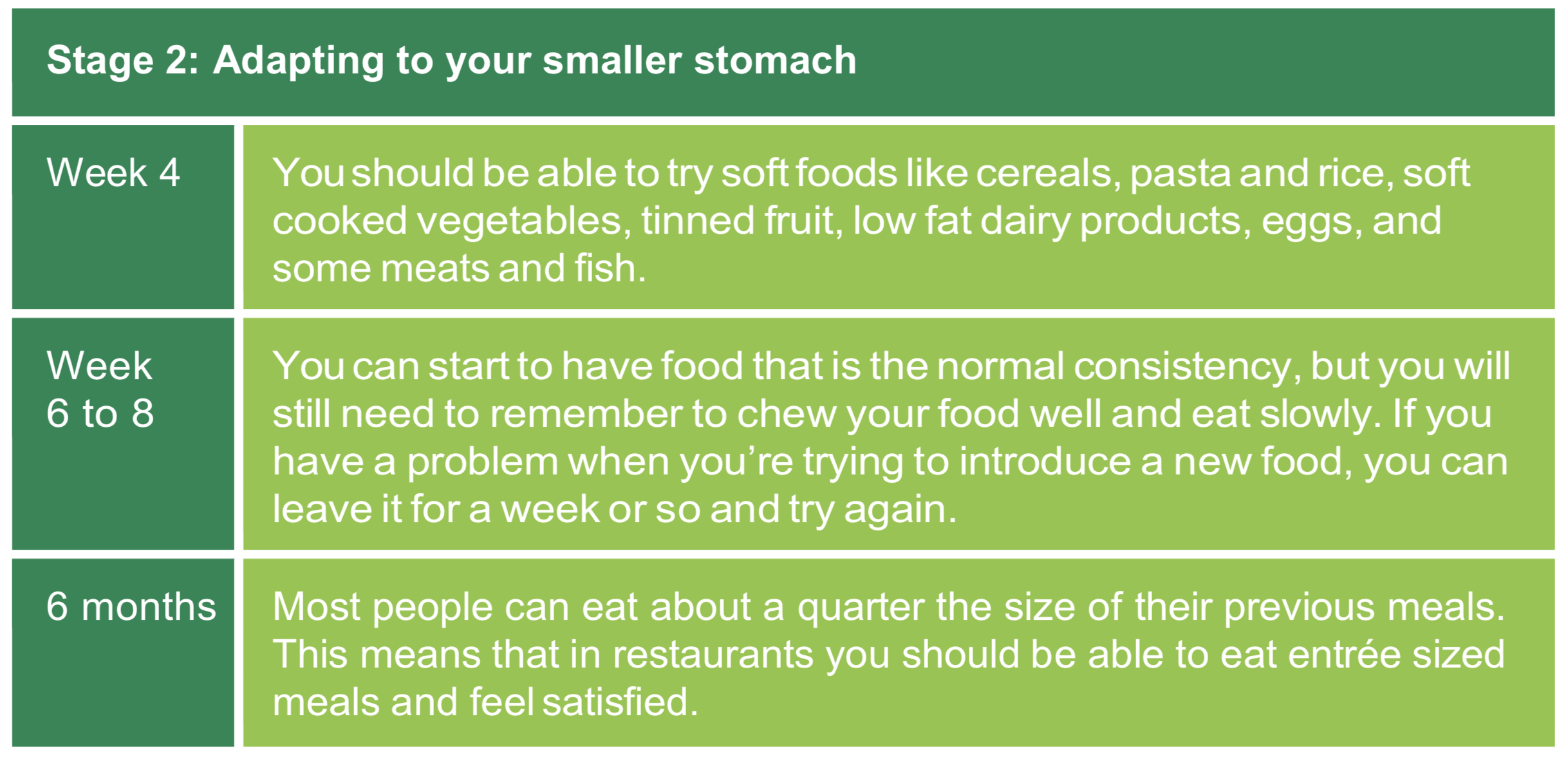Once you're back at home
Important to know
- Keeping active lowers the risk of complications
- Follow advice of surgeon and dietitian
- Ensure you drink at least 1.5 litres of water each day
- You must take daily multivitamins
Be active – the sooner you get back to normal daily activity, the lower the risk of complications. Try walking for at least half an hour a day but don’t do anything more vigorous as it could cause problems.
Remember your surgery needs to be accompanied by a healthy diet and sensible exercise with plenty of fluids between meals. When you feel full stop eating – meals should take between half an hour and an hour.
Medication

When you leave hospital you will be prescribed some medications that are important for your recovery.
These are:
- Omeprazole
This reduces the acid in your stomach and must be taken for at least six weeks after your surgery.
- Analgesia
This is pain relief medication – we’ll give you instructions on when to take it.
- Multivitamins
It is mandatory that these are taken daily for the rest of your life. They are a precaution against micronutrient deficiency.
- Multivitamins
It is mandatory that these are taken daily for the rest of your life. They are a precaution against micronutrient deficiency.

Once you go home
When you go home you’ll be on a smooth puréed diet so you’ll need a food processor. You shouldn’t feel hungry. Make sure you follow the advice of your surgeon and dietitian and stick to the guidelines that follow.
- Plenty of fluids
Fluids help avoid dehydration and keep your bowels regular so make sure you drink at least 1.5 litres each day in small amounts throughout the day. Fluids include sugar free cordial, water, low fat milk. Avoid fizzy drinks and alcohol.
- Protein
You need 60-80 grams of protein each day. Good protein includes lean meat, tofu, fish, chicken, eggs, legumes and low fat dairy products.
Things to watch out for:
- Your wound
Usually there are no issues after the operation but if you are having problems make sure you contact us.
- Dizziness
This isn’t unusual and often happens because you’re not drinking as much as you used to and your body needs to adjust. It’s important not to panic – find somewhere to lie down for a while and it should pass. Remember to drink about 2.0 litres of fluid per day and if it’s happening several times a day,call us.
- Going to the toilet
It may be difficult to have a bowel motion after surgery. You may need a fibre supplement and you’ll still need to drink a lot of fluids (between 1.5 – 2.0 litres a day).
- Nausea
Any surgery involving the stomach can cause nausea. It can happen just after surgery or after two weeks at home. Even if you feel unwell make sure you keep drinking water and try to have three small meals each day. Nausea wouldn’t normally be accompanied by vomiting – regurgitating white frothy saliva isn’t uncommon, but if you have persistent vomiting you should call us. We may ask you to take an x-ray dye study to check your stomach.
- Vomiting
Occasional vomiting isn’t unusual in the first few months. Remember your stomach can now only hold about 100 mls. Vomiting may happen if you’re not chewing enough eating too quickly or eating the wrong food. Make sure you chew and eat slowly – taking up to 30 minutes per meal – and stop when you feel satisfied. If vomiting persists or you can’t hold anything down for more than 8 hours call us or see your GP. Vomiting too much can cause damage through swelling and blockage so it’s important to check it out.
- Anorexia (not feeling hungry)
You might find you lose your appetite completely – make sure you eat your three small meals each day and continue to drink plenty of fluids.

